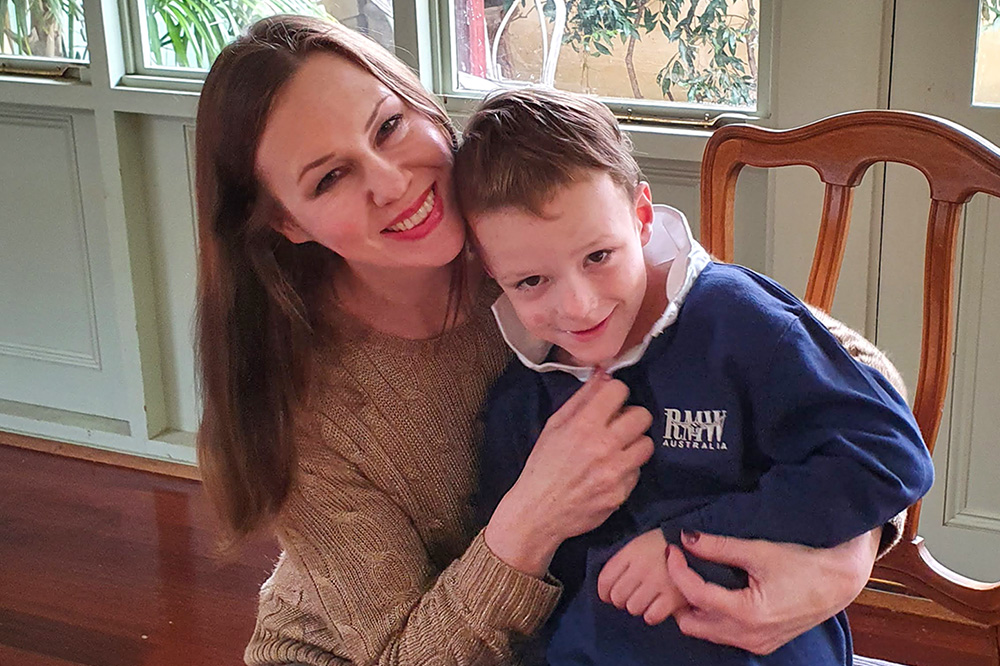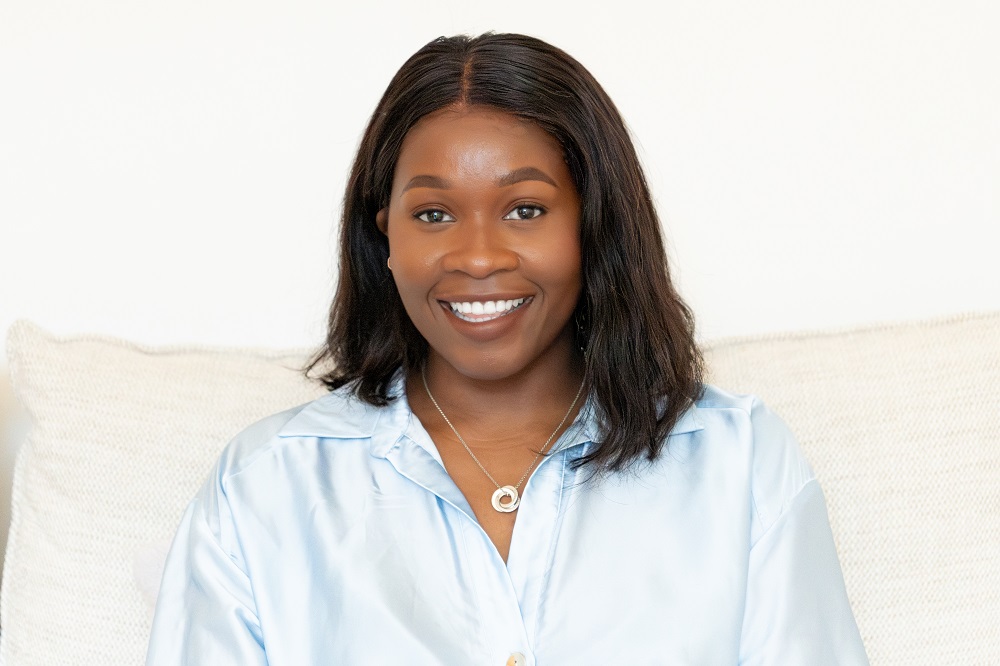On this page
Abbey's story
It had been over a decade since her last Cervical Screening Test when Abbey, a mother of three, found herself facing a cervical cancer diagnosis.

In June 2023, Abbey was busy working as a senior copywriter and single parent with three kids when she started to experience continuous and abnormal bleeding outside of her regular period.
Putting it down to her hormonal contraceptive, she carried on with her busy life, expecting it to resolve itself. When after a few weeks, the bleeding was still there and she started to notice other changes including abnormal discharge, she went to see her doctor to get it checked.
After a Cervical Screening Test completed by her doctor detected some abnormal changes caused by a persistent HPV infection, she was referred to a gynaecologist for further testing.
Three weeks and a biopsy later, Abbey was diagnosed with cervical cancer.
“As soon as the doctor said you have cervical cancer, my world just fell away. Everything became a blur and all I could think about were my children - would they grow up without their mum and how would they cope? It was one of the worst days of my life,” Abbey said.
Abbey was referred to the Peter MacCallum Cancer Centre for treatment, which included seven weeks of radiation and micro chemotherapy.
Although she feels lucky that her cancer was detected at an early stage and could be treated, she reflected that the diagnosis could have been avoided if she had kept up to date with her cervical screening.
“I knew cervical screening was something that I needed to do, and I had this sense of guilt, but the test was always so uncomfortable for me, so I kept putting it off. There were always more important things that I needed to do,” she said.
Now, Abbey is using her experience to urge others to prioritise cervical screening and to try the self-collection option, especially if they have been avoiding their test.
“Pap smear fear is real. I know it impacted me and I’ve spoken to many of my friends who have experienced it too and put off their test, so self-collection is a game-changer.
“Being able to take control and do it yourself, in private is just such an important option. If I had known about self-collection, I would have done the test much earlier,” she said.
Abbey’s message to others who have put off the test is not to delay and to book in as soon as possible.
“The alternative of going through a cancer diagnosis and treatment is just unfathomable. It doesn’t just affect you; it affects everyone around you.
“Unlike so many other cancers, cervical cancer can be detected early and even prevented through regular cervical screening. If you’re overdue, take this as a sign to book in your test tomorrow. It really could save your life,” Abbey said.
If you are due or overdue for your Cervical Screening Test, book your appointment today.
Read more about your testing options, including self-collection
Lucinda's story
A routine Cervical Screening Test helped to detect Lucinda’s abnormal cervical cell changes early so they could be treated before they developed into cervical cancer.

Lucinda was feeling healthy when a routine Cervical Screening Test in 2019 came back with abnormal results. Her first test done a few years before in Ireland had been clear, so Lucinda was surprised when this test picked up HPV (the virus that causes almost all cervical cancers).
“Being a midwife, I was familiar with the test and what it looks for, but I was still surprised when mine came back as abnormal and I had to go through the process myself,” Lucinda said.
Lucinda was asked to come back in 12 months to see if her body had cleared the HPV infection on its own. When the second test detected that the HPV infection was still there, she was referred to have a colposcopy to look closer at the cells in her cervix, which picked up some abnormal cell changes.
“Luckily, because these cell changes were found early, they could be treated to remove these cells and stop further growth,” Lucinda said.
With her 12-month check-up coming back clear, Lucinda’s message for others is to do their Cervical Screening Tests when they are due, even if they are feeling healthy.
“Cervical cancer is preventable so it’s so important to do your screening tests when you are due so that if there is anything abnormal that it can be found early and treated, and you can get back to your life.
“Remember that it's okay if your test does come back as abnormal. That’s why we do screening, to be able to pick this up and take action before this can turn into cancer. Even if you are feeling nervous, go and get the test done because it’s better to know and do something about it than wait until it’s too late.”
Tegan's story
After receiving an abnormal Cervical Screening Test result in her 20s, Tegan is encouraging other eligible people to try out the “easy and private” self-collection option.

During a general check-up last year, Tegan’s GP reminded her she was due for a Cervical Screening Test and told her about the self-collection option.
“I didn’t know that self-collection was an option at the time so when she offered it, I was curious and agreed to it,” Tegan said.
Tegan said the process was easy and her GP helped her understand the test.
“She closed the curtain while I undressed in privacy, then she guided me through the steps and the collection procedures,” she said.
“After it was done, I put the swab in the container that she was holding through a small gap in the curtain, then redressed.
“It was very easy to do, a lot quicker and it was private. I would definitely do it again next time.”
Tegan said that previously receiving an abnormal Cervical Screening Test result in her 20s reinforced the importance of keeping up to date with cervical screening.
“I know how important it is to do. I hadn’t “put it off” this time as such, but having the option to do it via self-collection certainly made it less daunting,” she said.
“If you are the type of person to get nervous before a cervical screen, I promise you it was easy, and that privacy was maintained.”
A Cervical Screening Test is recommended every five years from the age of 25 until you’re 74 to protect against cervical cancer.
You can have the test done by a doctor or nurse, or you can choose to self-collect your test in the clinic using a small swab.
If you are due or overdue for your Cervical Screening Test, book in with your doctor today.
Read more about cervical screening and your testing options